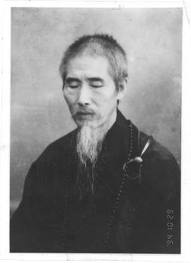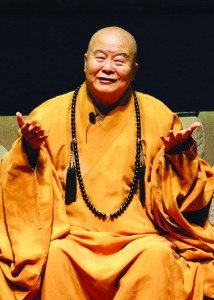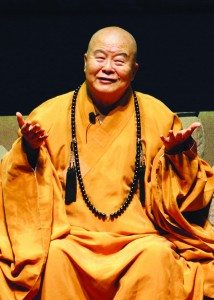The first precept of Buddhism, the one that drives many people away from Zen practice because they can’t keep it, is a call for not killing.
It doesn’t say not to kill people. It says not to kill, period. See The Lankavatara Sutra.
Following a precept results in a calm, soothed mind. The average vegetarian is a little less agitated, a little slower to anger than the average meat-eater. And not even slightly supportive of wars of aggression that the meat-eaters wildly applaud.
Those who do not care about animal life also do not care about human life. They think war is cool and that soldiers are admirable people who “serve” us. But they serve no one but the arms merchants, the bankers of the arms merchants, and others who desire the profits that war can generate.
People who eat animals argue that vegetarians also kill carrots, bacteria, etc. and that, therefore, no living being can avoid killing.
True, but there is a difference between killing a sentient being with a central nervous system that can feel pain and killing a carrot that has no central nervous system and that therefore has no means for feeling pain.
Meat-eaters like to say: “You can’t hear the broccoli scream,” as if killing a broccoli plant is the same as killing a cow or a human being. Nice try, but a broccoli plant is not a sentient being.
So the animal killers argue that Buddhism teaches that all things are one, that there are no distinctions between life and death, killing and non-killing, and so on.
They argue that a liberated mind could kill a cow or a human without karmic retribution, by maintaining a pure mind, just like killing an ant as one walks down a sidewalk absorbed in meditation and generating thoughts of goodwill towards all living things.
That is what Japanese Buddhists practiced during the Rape of Nanking (Nanjing). They beheaded people with “the life-giving sword.” They were merely sending the Chinese off to a better world. “We kill them because we love them so much,” said a Japanese commander.
The argument that it is OK to kill people because they are merely being sent to a better world has a major flaw. The same flaw exists in the argument that it is OK to kill animals for food because Buddhists are free of distinctions such as good and bad, right and wrong.
Only an enlightened Buddha has transcended right and wrong. The rest of us have not and therefore we have no license to kill. And no enlightened master chooses to kill people, animals, or insects.
But the Buddha ate meat! Sure; he was a beggar, a mendicant who ate whatever was placed into his bowl. He would not eat the body of an animal if it had been killed for him; he merely accepted whatever leftovers people gave him.
When we walk into a grocery store, we are not a beggar who has to go to the meat freezer in the back of the store.
Although it is true that a broccoli plant, like all plants, lacks a central nervous system and thus lacks the ability to feel pain (we hope), nothing in the universe, not even an inanimate object, is dead.
The Buddha taught that there are no two things – the life/death dichotomy, the form/emptiness dichotomy, simply doesn’t exist. That is the meaning of the enigmatic Heart Sutra, perhaps the most famous of the Mahayana texts. (The Heart Sutra is chanted daily in almost every Zen monastery, temple, or meditation practice center in the world.)
How could the life/death dichotomy not exist? The Buddha spent forty five years of his life explaining that only suffering arises and only suffering passes away. This thing we call “living” is just a string of thought moments. There is no thinker of the thoughts.
In the early years of World War II, before U.S. involvement, the Japanese bombed many Chinese cities and towns. Master Hsu Yun (Empty Cloud), who lived to be nearly 120, the teacher of master Hsuan Hua, founder of The Dharma Realm Buddhist Association, lived in one of those towns. Witnesses reported that bombs landing near the Master’s house fell silently, like snow flakes. Not a single one exploded. Even a bomb knows when it is in the presence of a Buddha.

Master Hsu Yun
Years later, after founding The City of Ten Thousand Buddhas near Ukiah, California, Master Hsuan Hua visited a student who neglected to tie up his dog. The dog charged up to the Master, and came abruptly to a stop. He bent his front legs and dropped his head, performing a bow. Even a dog knows when it is in the presence of a Buddha.
When the venerable Dau Sheng spoke the Dharma, dull rocks nodded their heads.
When Zen masters advise us to shun meat and fish eating as a part of our compliance with the first precept, we should at least be as smart as a bomb, a dog, or a dull rock.
Being a vegetarian, or better yet, a vegan, is not just a Buddhist stance. All Jains and many Hindu sects have long been vegetarian. Even Christians are slowly coming around. See the Christian Vegetarian Association.
Delightful it is to see that some Christians understand that “dominion” implies “stewardship,” and is not a green light to kill.

